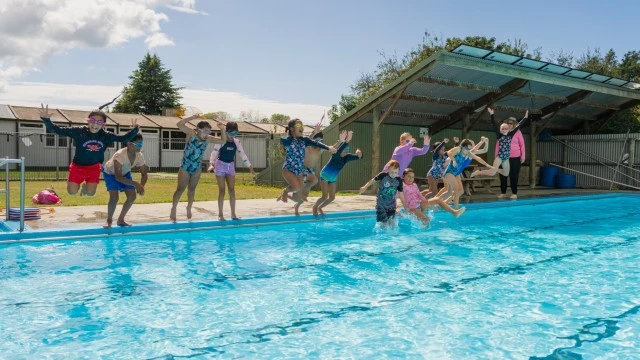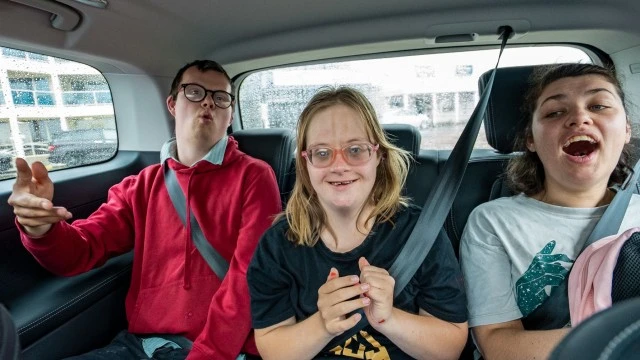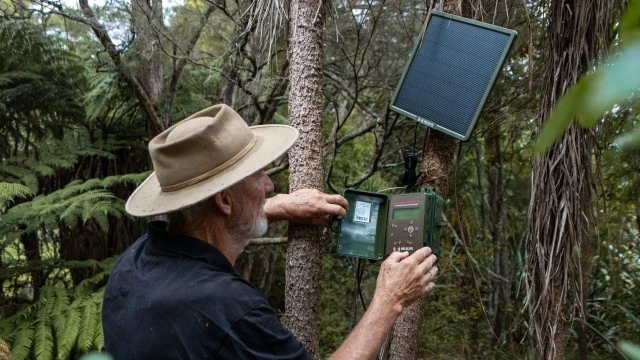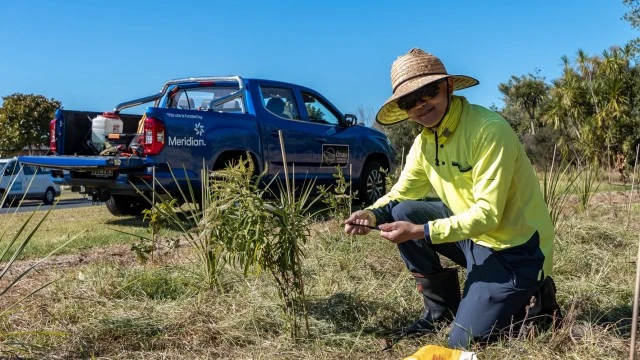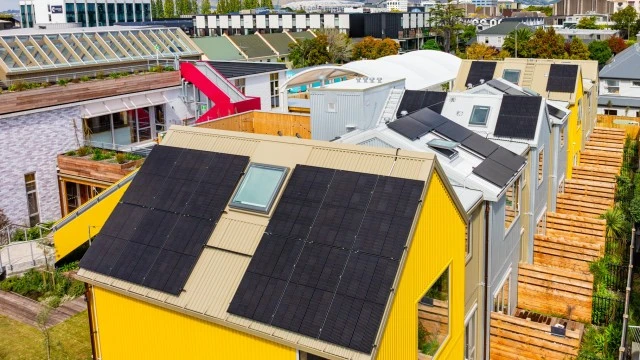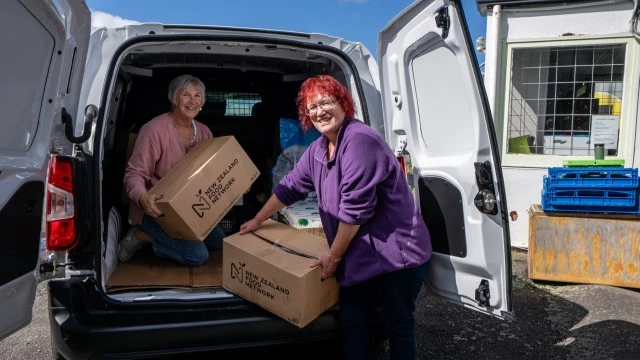Upbeat music plays. See Gemma Hutton, nurse practitioner at Twizel Medical Centre sitting in a patient room of the facility.
Gemma Hutton: “This is a really vital service for this community and for anyone that's visiting our area.”
See a modern, single-story medical centre building with Twizel Medical Centre signage out the front. There are large solar panels featured on the roof. Two men walk toward the entrance, which is clearly marked with accessibility ramps leading to automatic sliding doors.
Gemma Hutton: “So a typical day at Twizel Medical Centre, we run a primary healthcare GP practice from 8:30 till five, but we're available for all 24-hour, emergency services, prime and GP after hours.”
See a busy state highway with a large Twizel – Heart of the Mackenzie sign on the side of the road that shows you’re now entering the area. See the exterior of the medical centre again featuring manicured landscaping and a large sign in the entryway.
Gemma Hutton: “Having a place where we can see patients, treat them and get them to where they need to be is a pivotal resource.”
Inside the medical centre, we see Gemma Hutton walks into a well-lit treatment room. Medical equipment is visible in the background, showing a fully equipped facility. Gemma sits down at the room’s computer and is typing patient notes.
See Martin Kelly, Deputy Chair, High Country Medical Trust talking to camera and standing in front of the exterior of the medical centre. Solar panels are shown on the roof in the background.
Martin Kelly: “It's our role to provide governance that'll make sure that that building is suitable for the community and what the community needs.
Gemma Hutton is in treatment room, she is setting up the room for a new patient and preparing some medical equipment.
Gemma Hutton: “We will be a service that's involved in any Civil Defence emergency. If there's ever an event where we have a power cut, we still need to be able to provide adequate healthcare to patients. So that is an essential part of running our business.”
Martin Kelly: “The lights will always be on here at the High Country Medical Centre.
See Twizel township and the medical centre’s surroundings, revealing its remote location with mountains in the background. The landscape emphasises the facility's importance in this rural setting.
Martin Kelly: “So we applied for the Meridian Decarbonisation Fund and we are using that for a solar-powered system, so that we've got a backup system if the power goes down.
The camera pans across the roof of the medical centre, showing newly installed solar panels gleaming in the sunlight. The panels cover a significant portion of the roof space.
Martin Kelly: “Part of the idea of having the solar panels was not just so we can handle, a civil emergency, but also so we can actually generate some income that can actually help us keep moving forward with the building.”
See the centre’s battery system in a shed outside that allows the building to operate full off the grid. See a busy state highway with the large Twizel sign again on the side of the road.
Martin Kelly: “No matter what happens, people can still come in the door and, you know, get the service they need. People don't really understand how remote we really are.”
See Martin talking to another Trust Board member, they point at the solar panels and smile.
Martin Kelly: “You know, you can do business. Take a job here, come on holier, and have real confidence that if something happens to you, this community's going to wrap around you. And I think that's what we're trying to say. You know, we are here for the future and we're looking towards the future. Come to Twizel and enjoy it (laughs).”
See the Meridian logo appear on screen and upbeat music fades out.
